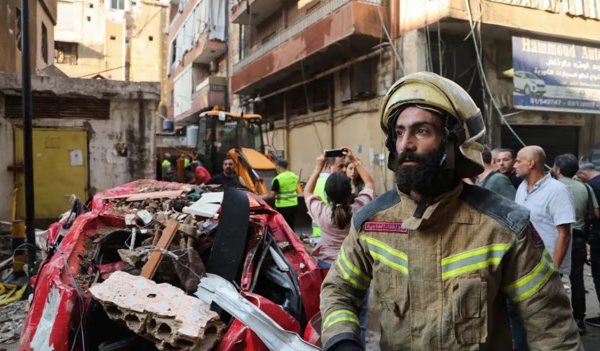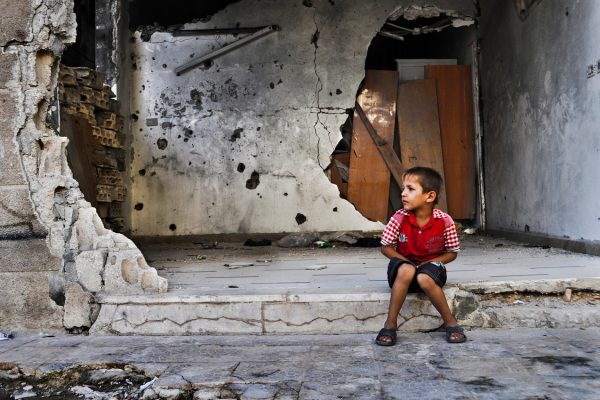“So mention the name of Allah over them as they stand in ranks for sacrifice. Then when they collapse upon their flanks, you may butcher their meat to eat of them yourselves — and to feed both the self-restrained needy and the suppliant poor” (Sûrat Al-Ḥajj, 22:36).
“So mention the name of Allah over them as they stand in ranks for sacrifice. Then when they collapse upon their flanks, you may butcher their meat to eat of them yourselves — and to feed both the self-restrained needy and the suppliant poor” (Sûrat Al-Ḥajj, 22:36).
Why do Muslims offer the qurbani (udhiyah) sacrifice at the time of the Ḥajj-Pilgrimage?
First, God specifically instituted the rite of sacrifice — of camels and cattle (cows, sheep, and goats) — as part of the Ḥajj-Pilgrimage on four Days of Slaughter (Ayyâm Al-Nahr, the 10th (after the Eid Prayer), 11th, 12th, and 13th of Dhu’l-Ḥijjah, the 12th month of Islam’s Hijri lunar calendar).
In addition, the ritual sacrifice Muslims the world over are called on to make at Ḥajj time holds many virtues and nuances of significance, explicit and of sacred secret. We can, however, identify five clear merits and implications:
(1) The qurbani brings out the gratitude to God down deep in our souls for bringing us to life after we were nothing even to be mentioned.
(2) The qurbani memorializes the way of Abraham and his son Ishmael, on them be peace, for their purity of faith, unparalleled will in submission to God and no other, and their extraordinary standard of sacrifice for all believers to strive to reach.
(3) The qurbani openly refutes all those who say it is wrong for human beings to humanely slaughter animals and eat their meat — whether that false assumption rests on an argument for the ethical treatment of animals, or lays claim to their divine elevation to sacred objects of worship and exemption.
(4) The qurbani establishes as the most humane method of killing an animal the single blade stroke to the carotid or jugular vessels that release the blood flow of the sacrifice.
(5) The qurbani overtly demonstrates God’s subjugation of the earth to human beings and the morality of taking the life of designated creatures to fulfill our needs, for which we must be ever grateful because it shows that God has raised us above much of His creation. (See What Is the Qurbani Sacrifice?)
What is the backstory of the Qurbani (udhiyah) sacrifice at the time of the Ḥajj-Pilgrimage?
The prophetic practice of sacred sacrifice — known commonly to Muslims as qurbani (udhiyah – ritual sacrifice) or qurbanah (offering to “draw near” God in the Arabic of the Quran) — goes back to Abraham, Friend (Khalil) of God and Father of the Prophets, along with his eldest son, Prophet Ishmael.
The Heavenly Books, and correctively and specifically the Quran, recount to us the divine test of sacrifice to which God subjected Abraham and his son Ishmael in order to establish three things:
- The impeccable quality of the upright way and faith of both Abraham and Ishmael, peace on them.
- The ritual practice by the blessed believers of this original form of godly worship.
- A merciful standard of submission, reverence, repentance, and charitable practice for believers in the One God for the latter generations.
In sum, God commanded Abraham to demonstrate his unreserved faith and his submission without condition to Him alone through a revelation imparted in a dream. He saw himself sacrificing his beloved first-born son, Ishmael, child of Hajar (Hagar in English).
Abraham related this to Ishmael, a boy who had reached the age of striving alongside his father. His son, a participant in this divine obedience, had also to willingly accept this as a divine command. Ishmael urged his father to comply with the God’s command.
They were in the Valley of Tears, Bakkah, now known as Makkah, where Abraham had settled this seed of his family near the foundations of the First House of God established (by Adam) on earth.
When Abraham and Ishmael had willingly submitted themselves to God’s will, at the decisive moment of slaughter, God intervened, accepted the intention of both in fulfillment, and provided them with a ram as a “sacrifice of a magnificent offering” instead. (Some hold the ram to have been the very offering God raised up in acceptance from Able, son of Adam, over his brother Cain’s deficient presentation at the dawn of humanity on earth.)
God established the Ḥajj-Pilgrimage in the first 13 days of the 12th lunar month, named for this pillar of worship, for all the offspring of Abraham, from the lines of both Ismail and his younger brother Isaac (son of Sarah). As part of the Ḥajj, God instituted this rite of udhiyah, ritual sacrifice, on the day of Hajj’s completion, the 10th, which is Eid Day, after its communal prayer is solemnized.
Because of this rite of sacrifice, Eid Day is also known as Yawm Al-Nahr, the Day of Slaughter. The three days that follow it are called Ayyâm Al-Tashrîq, the Days of Jerking (or drying out the slaughtered meat, traditionally in the sun, to preserve it).
It is noteworthy that Ḥajj, or pilgrimage, to this most Ancient Holy House had ever been a sacred institution for all humankind. God revived and ritualized it first through the efforts and experiences of Abraham and this branch of his family, including Ismail and his Egyptian mother Hajar (whose traces between the two mounts Muslims traverse in worship to this very day). Then God restored it once again through Prophet Muhammad, on him be peace, perhaps 2,600 years later (See What is the Day of ‘Arafah and Why Is It Important?).
What establishes that the Qurbani sacrifice is for all Muslims at Ḥajj time?
The command for Muslims to sacrifice at the designated time of Ḥajj is among the strongest in all Revelation.
The Quran
First, the Quran, which is the Last and Final Divine Revelation to humanity, instructs Muslims performing the obligation of Islam’s Fifth Pillar of worship, Ḥajj:
As for the charitable-offerings of camels and cattle at the Hajj-Pilgrimage, We have made the benefit of sacrificing them among the prescribed rituals and waymarks of Allah for you.
In them, there is much good for you.
So mention the name of Allah over them as they stand in ranks for sacrifice. Then when they collapse upon their flanks, you may butcher their meat to eat of them yourselves — and to feed both the self-restrained needy and the suppliant poor (Sûrat Al-Ḥajj, 22:36).
In addition, the Quran commands the Prophet, on him be peace:
So perform the Salah [ritual Prayer] for your Lord and slaughter [a sacrificial animal] (Sûrat Al-Kawthar – The Abundance 108:2).
This kind of command directed to the Prophet, on him be peace, in the first instance, is not the kind of divine directive that is exclusive to him, which means it applies to all who follow him, meaning the Muslims.
The Sunnah (or revealed way) of the Prophet, on him be peace
There is a superabundance of reports of the Prophet, on him be peace, and his Companions making this sacrifice on Eid Day and commanding others to likewise sacrifice.
The Companion Jâbir (Allah be pleased with him) said: “I prayed on Eid al-Adha with the Messenger of Allah, Allah’s peace and blessings upon him. When he finished [the Eid Prayer], two rams were brought to him, and he sacrificed them both. He said [at the moment of sacrifice]: ‘In the Name of Allah. Allah is the Greatest (Bismillah. Allahu Akbar.) This is from me, and from anyone of my Ummah who did not offer sacrifice’ ” (Abu Dawud).
The Prophet, on him be peace, instructed Muslims:
“If the 10 (first days of Dhu’l-Hijjah) come in and one of you wishes to slaughter, then let him take nothing from his hair or skin” (Muslim).
This means Muslims should (some scholars say must) offer a qurbani sacrifice for their household on the day of Eid, after the Eid Prayer, or on the three Days of Sacrifice that follow. The pilgrims of Ḥajj cannot cut their hair or trim their nails and must offer sacrifice. So this is clearly directed to Muslims not actually at the Ḥajj.
The Prophet, on him be peace, said, as well:
“One who has ample wealth to offer sacrifice but does not do so, let him not approach our place or prayer” (Ahmad, Ibn Majah).
The consensus (ijmâ‘) of the Muslim community
All our scholars, and virtually all the people of this community, establish the practice of al-udhiyah or qurbani sacrifice.
This means that the tradition of udhiyah, the ritual sacrifice of Hajj time, holds the strongest possible authenticity as a religious practice.
Can one designate another to sacrifice for him or her and give the meat to those in need?
Yes.
While it is a standard of the Prophet’s practice, on him be peace, to sacrifice for oneself and household and distribute a portion of the meat to family, near ones, and neighbors based on need and gifts, many scholars of our era hold that it is desirable for Muslims living in food sufficiency and accessibility today to pay for the cost of their qurbani(udhiyah) sacrifice to be raised, slaughtered, and distributed where there is great hunger, poverty, oppression, and displacement among Muslims.
They hold this revives the practice of the Prophet, on him be peace, and fulfills the duty on Muslims he himself set of bringing aid and happiness to Muslims everywhere on these Eid days of joy and festivity. (See Is the Qurbani Sacrifice (Udhiyah) Mandatory on Muslims?)
Does Zakat Foundation do Qurbani sacrifice for the needful?
Yes.
Zakat Foundation of America has a strong, reliable, worldwide qurbani / udhiyah program.
The Zakat Foundation:
☞ Buys live cattle in 40-plus countries in advance exclusively for qurbani (udhiyah).
☞ Hires shepherds to pasture, feed, and care for the qurbani animals.
☞ Performs proper ritual sacrifice of the qurbani cattle — in accordance with the prescribed way of the Prophet, on him be peace — on the day of Eid al-Adha.
☞ Butchers the qurbani (udhiyah) meat on the day of Eid al-Adha.
☞ Hand-delivers the fresh qurbani (udhiyah) meat to families in great need and suffering from hunger on the day of Eid al-Adha so they can celebrate with joy, along with the rest of the global Muslim Ummah.





